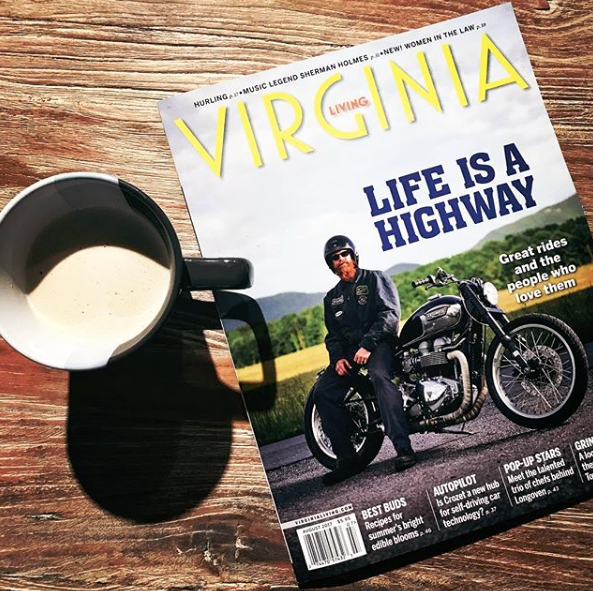
Sequel: Erin McPherson
Our ongoing Sequel series features stories about our alumni. If you’re interested in pursuing digital editing work like Erin, the department is launching a minor and concentration in Writing, Rhetoric, and Publication. Both are designed to provide the writing and editing experiences that Erin describes. The department also sponsors internships each semester in ENGL 495: Field Internships.
Erin McPherson, a digital editor at Virginia Living magazine graduated from CofC with a B.A in English in 2010 and an M.A in English in 2016.
After graduating with her B.A., Erin made her way as a freelance writer by contributing to blogs and small websites as well as some “online teaching, tutoring, and social media management.”
After a few years of freelancing, Erin made a return trip to the English Department by starting her M.A. in 2014, where, during her last semester as an M.A. student, she completed an editorial assistantship that, as she recounts, resulted in a change in her focus from 19th century British literature, “especially Dickens and Austen, with a focus on politics in literature,” to the “editorial world.”
I completed an editorial assistantship at The Local Palate in Charleston, and that really launched me into the editorial world and helped me fine tune what I wanted to pursue as a career. Afterwards, I moved to Virginia and began doing full-time brand management for an e-commerce company — social media, customer outreach, website and content management, etc.
Later, when an internship position opened at Virgina Living, Erin was able to tap the writing expertise she developed inside and outside of the English Department, and she found that her experience made her a highly competitive candidate. It may come as no surprise at this point that she got the internship.
And a few months after her internship ended, a position came available at Virginia Living, and the editor reached out to Erin, asking her if she would interview for the position.
When the digital editor position became available at Virginia Living, my experience doing branding and marketing work, coupled with my background and love for writing, made me really competitive for the position, because a lot of candidates come from either a marketing background or a writing background, but not both.
She has been in that position ever since and has been generous enough to share a music review that she recently contributed to the magazine, “Old Time Music.”
In addition to all of this work, Erin still freelances and contributes to the Charleston-based magazine The Local Palate.
When asked what she would convey to current students interested in a similar career trajectory, Erin had four pieces of wisdom she wanted to share.
- Do an internship.
I never completed an internship during my undergraduate studies and I really wish someone had stressed the importance of those programs to me. Unfortunately, it’s not always easy to find paying internships, particularly in the editorial or publishing professions, and the lack of a paycheck can be a burden. But the connections you make are invaluable — even if they don’t land you a job immediately, you can build relationships with people who may recommend you later on, or you may discover a career path you’d never considered before (alternatively, you may find that the career path you thought you wanted isn’t for you.) These are all important lessons that I didn’t learn until I completed two publishing internships at the end of my graduate degree.
- Be professional.
It’s so important for students to be professional in their interactions, not just with potential employers, but with everyone. I didn’t realize that writing an email is actually a skill until I started receiving applications for the digital internship at Virginia Living, which I oversee. First impressions really count, and if you’re sending a first contact with no subject line, or a single sentence that says, “Hey, please see my resume attached,” you’re actually telling employers you didn’t care enough to find out anything about them. So why should they care about you?
- Trust your editors.
You may not always agree with their word choice or stylistic choices, but more than likely, they’ve been at this job longer than you. Editors know what works and what doesn’t and they can spot inconsistencies or confusing structures that a writer, who knows the material front and back, might miss. They also know the voice of the brand. Every publication is trying to achieve a particular objective, so the simplest thing — replacing a semi-colon with an em dash, for example — might irritate you as a writer, but it’s a preferential choice that was probably well-calculated on the editor’s part.
- Don’t give up.
Don’t give up. You will get rejection letters, probably a lot of them — and often you won’t hear back from a job at all. And the dream company you intern with the first time might not have any staff openings. But things will start to happen. Maintain the professional connections you make and reach out regularly with pitches or just to say hello. That way, you’re on the forefront of someone’s mind when an opportunity becomes available, and eventually a door will open for you.









